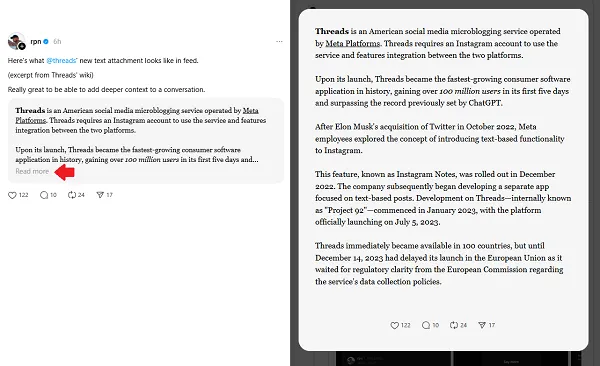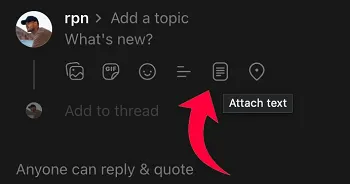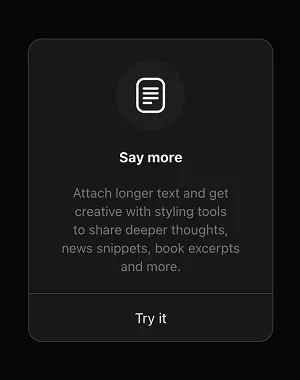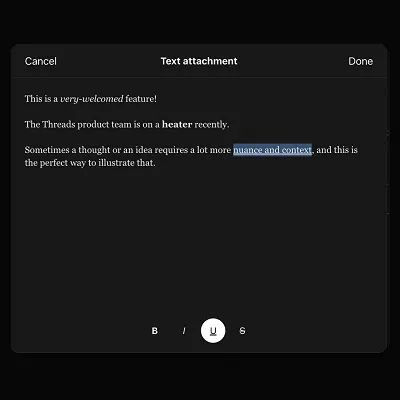Threads is trying to assist customers put up longer missives, with the addition of a customized textual content editor, which attaches a separate textual content window to your replace.

As you possibly can see in these examples, posted by Robert Nickson, Threads is dwell testing a brand new textual content editor, which supplies a straightforward solution to increase your put up into an extended article, that can then be robotically hooked up to your replace.
It’s not accessible to all customers as but, however if in case you have it, you’ll see a brand new web page icon in your posting choices within the app.

Faucet on that and also you’ll be proven a brand new information pop-up, which explains the replace:

From there, you’ll be taken to the subsequent textual content editor window, which is sort of a weblog put up composer, together with a bigger textual content window and text-styling choices.

It’s just like Twitter’s “Articles” possibility, which it first experimented with earlier than Elon Musk took over on the app, after then-CEO Jack Dorsey lamented the rise in individuals posting screenshots of Notes app textual content of their updates.
Since then, as X, the platform has prolonged the size of posts in-stream as a substitute, with paying customers now ready to make use of as much as 25k characters of their updates.
X additionally has a long-form “Articles” possibility as nicely (additionally for paid customers), by which it has inspired publications to put up direct to the app, in an effort to get higher attain.
That is seemingly Threads’ variation of the identical, offering one other means for Threads customers to put up longer content material with no need to share screenshots of textual content.
And it seems to be good, it seems to be like a helpful possibility that can certainly cater to those that wish to embrace longer descriptions. I imply, it does considerably go towards the short-form nature of the app, and, you recognize, creating threads, like its namesake, however with so many individuals trying to put up extra context, to make sure they’re understood, it might be a useful addition.
The Threads workforce is at present testing its long-form replace with some customers.



